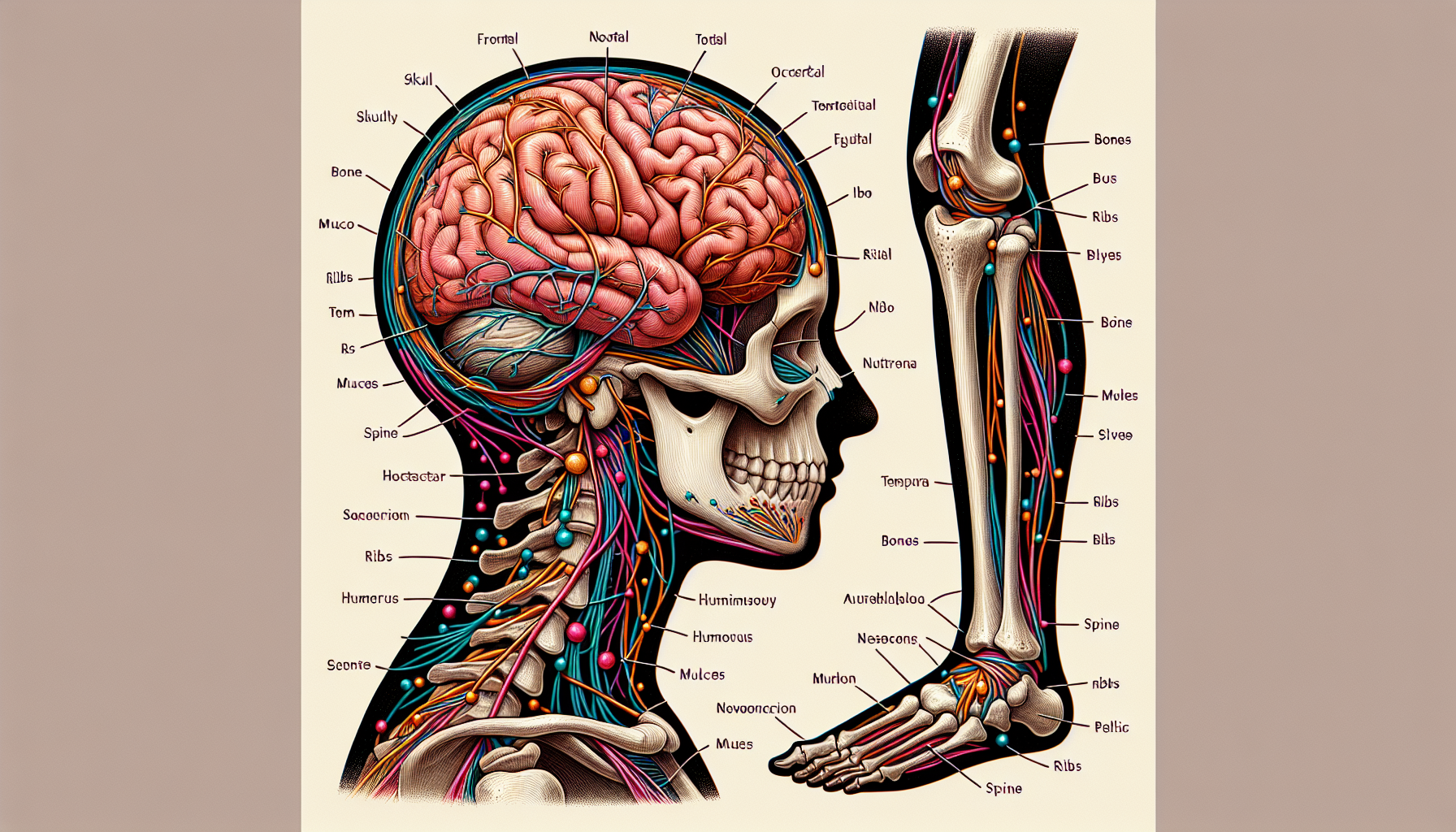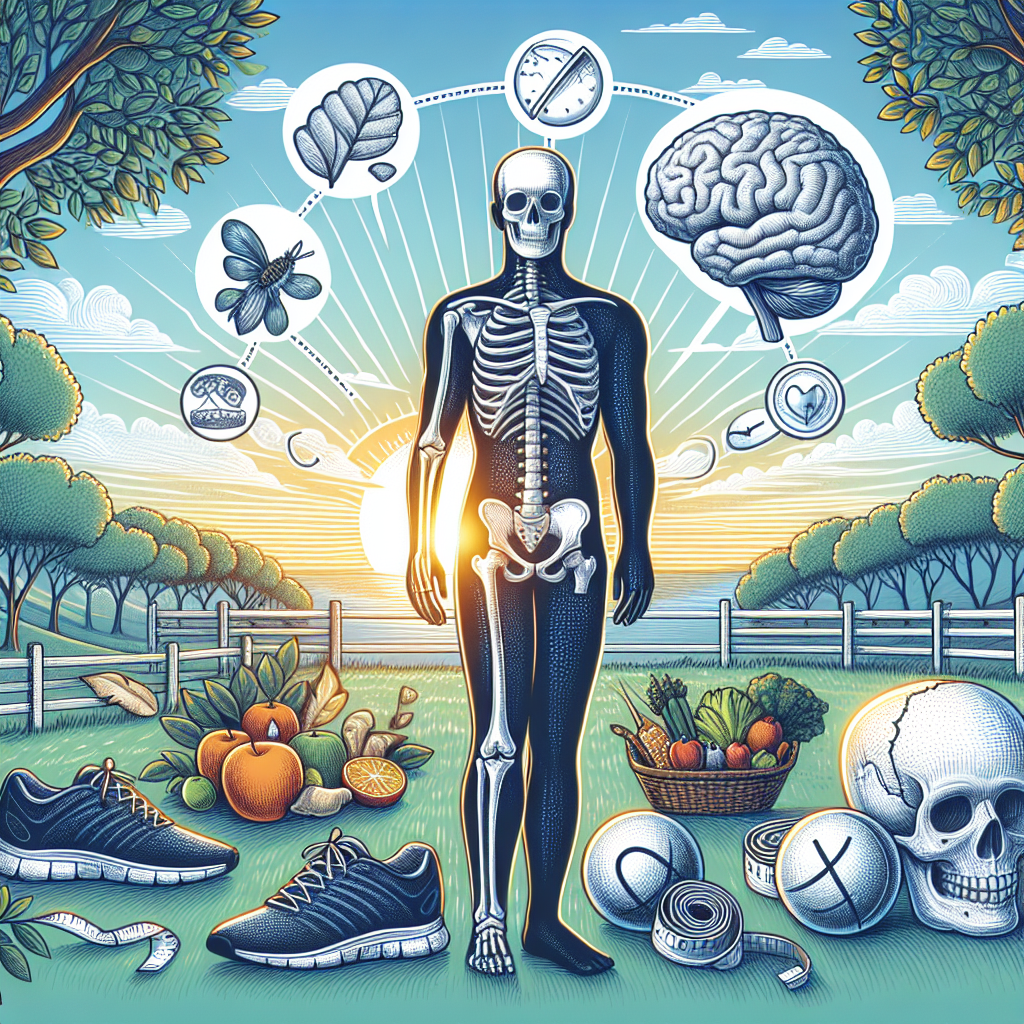Maintaining strong bones is crucial for our physical health, but what many may not realize is the significant impact that bone health can have on our mental well-being. The intricate relationship between bone density and mental health is a rapidly evolving field of study, shedding light on how these two seemingly disparate aspects of health are profoundly interconnected.
The Foundation of Bone Health
Before delving into the mental health connections, it’s essential to understand the basics of bone health. Bones are living tissue, constantly being broken down and rebuilt. This process is vital for maintaining bone strength and density. Factors such as age, gender, nutrition, physical activity, and hormonal balance play a significant role in bone health. For a deeper understanding of maintaining bone wellness, Avix Health provides a comprehensive guide on bone health.
The Bone-Mental Health Connection
Recent studies have begun to uncover a correlation between bone density and various mental health conditions. For instance, conditions such as depression and anxiety have been linked to lower bone mineral density (BMD). This association suggests that mental health disorders may not only affect the mind but also the body’s ability to maintain strong bones.
Depression and Bone Density
Depression has been shown to have a negative impact on bone density. The stress hormone cortisol, which is often elevated in individuals with depression, can lead to increased bone resorption—where the body breaks down bone tissue faster than it can rebuild it. This imbalance can lead to osteoporosis and an increased risk of fractures.
To explore the effects of chronic stress and inflammation on bone density, a resourceful article by Avix Health discusses the impact of chronic inflammation on bone health, providing insight into how mental health can indirectly affect bone strength.
Anxiety Disorders and Bone Health
Similarly, anxiety disorders can also play a role in diminishing bone health. The fight-or-flight response associated with anxiety triggers the release of adrenaline and cortisol. Chronic activation of this response can interfere with bone regeneration and may lead to lower BMD.
The Role of Antidepressants
The relationship between bone health and mental health is further complicated by the use of certain antidepressants that can influence bone metabolism. Some studies have found that long-term use of SSRIs, a common class of antidepressants, may be associated with bone loss.
For those seeking to understand the effects of medication on bone density, Avix Health provides an article on the impact of oral contraceptives on bone density, offering a glimpse into how various medications can affect our skeletal system.
Nutritional Aspects of Bone and Mental Health
Nutrition is a vital component of both bone and mental health. Calcium and vitamin D are well-known for their role in maintaining bone density, but they also play a part in mental health. Vitamin D receptors are present in the brain, and deficiencies in this nutrient have been linked to mood disorders such as depression.
For individuals with dietary restrictions, it’s important to find suitable sources of these essential nutrients. An informative piece on Avix Health provides valuable information on vegan sources of calcium and vitamin D for bone health, which can be beneficial for mental health as well.
Lifestyle Factors Influencing Bone and Mental Health
Physical Activity
Exercise is not only crucial for building and maintaining bone density, but it also has a profound effect on mental health. Regular physical activity can reduce symptoms of depression and anxiety, partly due to the release of endorphins, which are natural mood lifters.
Sleep Quality
Sleep and mental health are closely connected, with poor sleep being both a symptom and a cause of mental health issues. Moreover, sleep is essential for bone health, as bone rebuilding predominantly occurs during sleep.
The discussion on the importance of sleep can be furthered by visiting an external resource that offers in-depth insights into the impact of sleep quality on bone repair and health.
Stress Management
Chronic stress can have detrimental effects on both mental and bone health. Stress management techniques such as mindfulness, meditation, and therapy can be effective in improving mental well-being and, indirectly, bone health.
For those interested in exploring the connection between stress and bone density, a valuable resource can be found by examining the relationship between psychological stress and bone density.
The Importance of Holistic Care
Given the complex interplay between bone density and mental health, a holistic approach to health care is essential. Health professionals should consider the mental health of patients when addressing bone health and vice versa.
Conclusion
The relationship between bone density and mental health underscores the importance of a comprehensive approach to health care that considers both the physical and psychological aspects of well-being. By addressing both bone health and mental health together, individuals can work towards a more balanced and healthy life.
For further reading on the multifaceted aspects of bone health, exploring external resources such as the International Osteoporosis Foundation can provide extensive information on bone health and its global impact.
The journey towards understanding and improving our health is ongoing, and recognizing the connection between all aspects of our well-being is a vital part of that journey. By fostering awareness and education on the relationship between bone density and mental health, we can pave the way for better health outcomes for individuals around the world.



